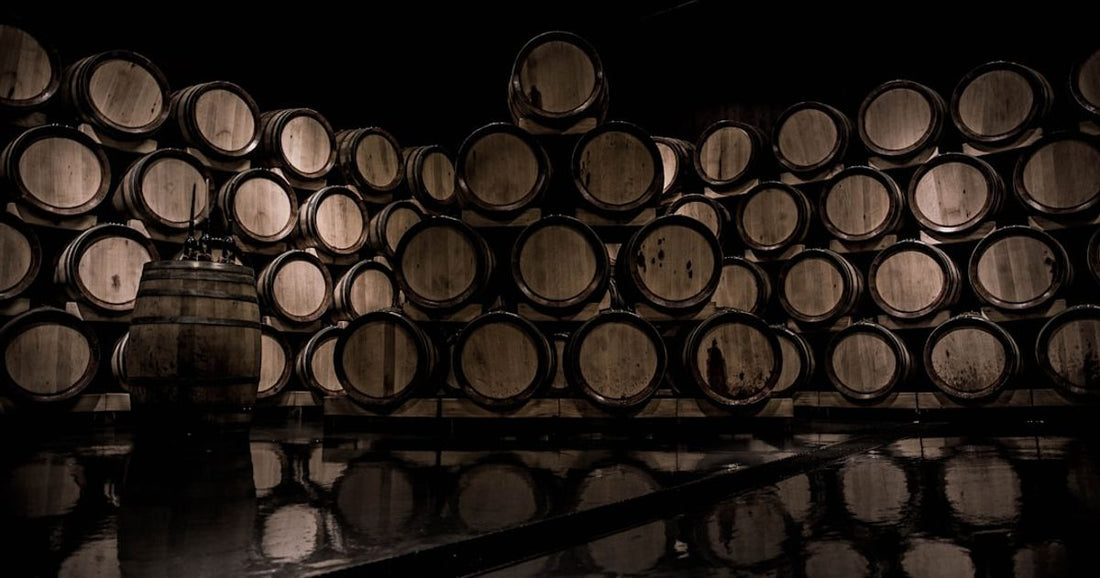
Debating the Influence of Wine Critics
Share
In the world of wine, critics hold a significant position, wielding the power to influence market trends, shape consumer tastes, and even determine the financial success of vineyards and wineries. With their sophisticated palates and deep knowledge of wine, their opinions are highly regarded by both enthusiasts and professionals within the industry. However, the impact of wine critics is a subject of much debate. Some argue that their influence is essential for guiding consumers through the complex and varied landscape of wine, while others believe it can overshadow personal preferences and stifle diversity. This article delves into the role of wine critics, exploring their impact on wine selection, purchases, and the broader market dynamics.
Key Takeaways
Before we dive deeper into the nuances of wine critics' influence, let's outline the key points to remember from this discussion:
- Wine critics play a pivotal role in shaping consumer tastes and market trends.
- Their reviews and ratings can significantly affect the sales and reputation of wines and wineries.
- Critics' influence can lead to a homogenization of tastes, potentially overshadowing lesser-known or unconventional wines.
- The digital age has democratized wine criticism, with a growing number of platforms and voices contributing to the conversation.
- Consumers are encouraged to use critics' insights as a guide rather than a definitive judgment, fostering a more personal and exploratory approach to wine tasting.
The Power of the Critic's Palate
Wine critics possess an esteemed position in the wine industry, primarily due to their ability to discern and articulate the subtle nuances of wine. Their assessments can make or break a wine's reputation, influencing both its market value and consumer demand.
Influence on Consumer Choices
The opinions of esteemed wine critics often serve as a beacon for consumers navigating the vast sea of available wines. For many, a high rating from a well-respected critic is akin to a seal of approval, significantly influencing purchasing decisions. This trust in critics' judgments stems from their perceived expertise and impartiality, providing a shortcut for consumers seeking quality assurance.
However, this reliance on critics' ratings can sometimes limit consumers' willingness to explore beyond the acclaimed selections. The emphasis on scores and accolades may overshadow personal taste preferences, potentially leading to a narrower experience of the diverse world of wine.
Impact on Wine Markets and Trends
Wine critics not only influence individual consumer choices but also shape broader market trends. A glowing review or a high score from a prominent critic can catapult a previously obscure wine or winery into the limelight, dramatically boosting sales and recognition. Conversely, a less favorable review can have a detrimental effect, particularly for smaller, lesser-known producers.
The power of critics' endorsements extends beyond immediate sales impacts, influencing wine production and marketing strategies. Wineries may tailor their practices to align with the tastes of influential critics, hoping to secure favorable reviews that will enhance their reputation and market presence.
The Debate Over Homogenization
A central point of contention in the debate over wine critics' influence is the potential for homogenization of wine tastes and styles. Critics, particularly those with a large following, can inadvertently shape the industry towards a narrower range of flavors and profiles that align with their preferences.
Driving Industry Standards
The influence of wine critics can lead to a convergence around certain styles or varieties that receive consistent high ratings. This trend can encourage winemakers to prioritize these styles, potentially at the expense of diversity and innovation. While striving for quality is commendable, there is a risk that unique and unconventional wines may struggle to gain recognition if they fall outside the critics' favored profiles.
Championing Diversity and Innovation
Despite concerns over homogenization, some argue that wine critics play a crucial role in promoting diversity and innovation within the industry. By highlighting exceptional wines from lesser-known regions or unconventional blends, critics can broaden consumers' horizons and encourage exploration. The key lies in the critics' willingness to seek out and celebrate diversity, challenging their own palates and those of their audience.
The Rise of Digital Voices
The advent of the internet and social media has transformed the landscape of wine criticism, democratizing the field by enabling a multitude of voices to share their opinions. This digital revolution has both challenged the traditional authority of established critics and enriched the wine conversation with a wider range of perspectives.
Expanding the Circle of Influence
Digital platforms have given rise to a new generation of wine bloggers, influencers, and enthusiasts, each contributing their unique insights and tastes. This proliferation of voices has made wine criticism more accessible and diverse, offering consumers a broader spectrum of opinions to consider. The interactive nature of digital media also facilitates dialogue between critics and consumers, fostering a more engaged and informed wine community.
Maintaining Credibility and Trust
With the increase in sources of wine criticism comes the challenge of discerning the credibility and expertise of these voices. Established critics often undergo rigorous training and have years of experience, which underpins the trust placed in their opinions. As the wine criticism landscape becomes more crowded, consumers must navigate the varying levels of expertise and bias, seeking out voices that resonate with their own tastes and values.
Navigating the Influence of Critics
In the end, the role of wine critics is both influential and complex, shaping tastes, markets, and even the wine itself. As consumers, the challenge lies in leveraging critics' insights as a guide while maintaining an openness to personal discovery and exploration.
Using Critics as a Guide
Wine critics can provide valuable guidance, helping consumers discover new wines and understand the subtleties of different styles and regions. Their expertise can demystify the often-intimidating world of wine, offering a starting point for exploration. However, it's important for consumers to view critics' opinions as one of many tools in their wine selection process, not the definitive judgment.
Fostering Personal Exploration
Ultimately, the most rewarding wine journey is one that is deeply personal and exploratory. Encountering a wide range of wines, including those beyond the critics' recommendations, allows individuals to develop their palate and discover their preferences. Engaging with wine communities, attending tastings, and experimenting with different varieties and styles can enrich the wine experience far beyond the influence of critics.
In conclusion, while wine critics undoubtedly play a pivotal role in shaping the wine world, their influence should be balanced with a spirit of personal discovery. By navigating critics' insights with an open mind and a curious palate, wine lovers can embark on a uniquely rewarding exploration of the vast and varied landscape of wine.



